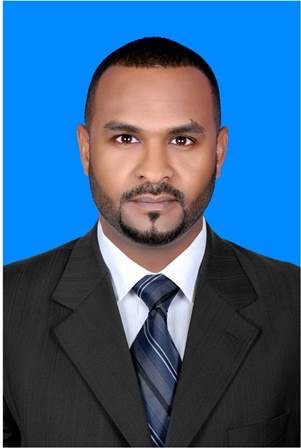Demands to save the Agricultural season

Sudan Events – Nahid Oshi
The expert in crop and gold exports, a member of the Sudanese Businessmen and Women Club, Chairman of the Board of Directors of Quartz Company for Multi-Activities, Mohamed Yahya Osman, called on the Sovereignty Council TSC to save the agricultural season and confront the threat of famine looming over Sudan.
He said, “It is necessary to pay attention to the agricultural sector alongside military attention and armament operations by providing space for cooperation with the private sector to save what can be saved by accelerating and facilitating meetings between stakeholders from farmers, businessmen, and representatives of the state and its companies and sponsoring this matter.
In a statement to “Sudan Events “, he called on the private sector to provide rapid financing and form an emergency fund to save the summer agricultural season and prepare for the winter season.
He said that establishing a rapid financing fund or portfolio could contribute to reducing the severity of the expected crisis, provided that it is financed directly to small farmers to provide seeds, fertilizers and all agricultural preparations in safe states, and that the lands and suspended projects, estimated at more than 30 million acres, are cultivated.
He added that 40% of them are cultivated by rain and the rest can be done by the state. Prepare it as soon as possible to plant it with some important crops that are grown in those states that have been removed from the production cycle, such as millet and corn. He said, “If we look at some neighboring countries, we find that a country with only less than 9 million acres suitable for agriculture is now the first in exports of dates, potatoes, strawberries and oranges, and it earns more than 3.5 billion dollars from those exports alone, unlike other crops.” Yahya stressed that the state’s cooperation with the private sector and businessmen has enabled the cultivation of fodder, wheat, beans, some vegetables and fruits, and contributes to alleviating hunger now and in the future.
He affirmed the importance of the participation of the private sector and businessmen in averting the threat of famine in Sudan, especially in light of the deteriorating political and economic conditions as a result of the rebellion of the Rapid Support RSF Militia against the state apparatus and the SAF , and in light of the systematic sabotage carried out by this militia in various areas in the outskirts of Sudan, including infrastructure, destruction, displacement and migration of thousands of citizens and farmers, and the theft of equipment and preparations for the current agricultural season in many areas such as Darfur, Kordofan, Gezira , some areas of the Blue Nile, and the areas of Sennar and its surroundings, where the alarm bell rings for some crops that the residents of those areas depend on for their food and trade, thus affecting the state’s revenues.
He said, “The state budget is a war budget and is flexible, according to the Minister of Finance, so there must be a review that takes into account this danger, especially the danger threatening farms and agricultural lands that need rapid financing in light of the high costs of their production due to their scarcity or because they are not cultivated in the first place due to the lack of security in that area of large agricultural lands that most of the people of Sudan depend on to provide food.”
He added, “The state faces a major challenge in providing food and delivering it to those areas to prevent famine.



